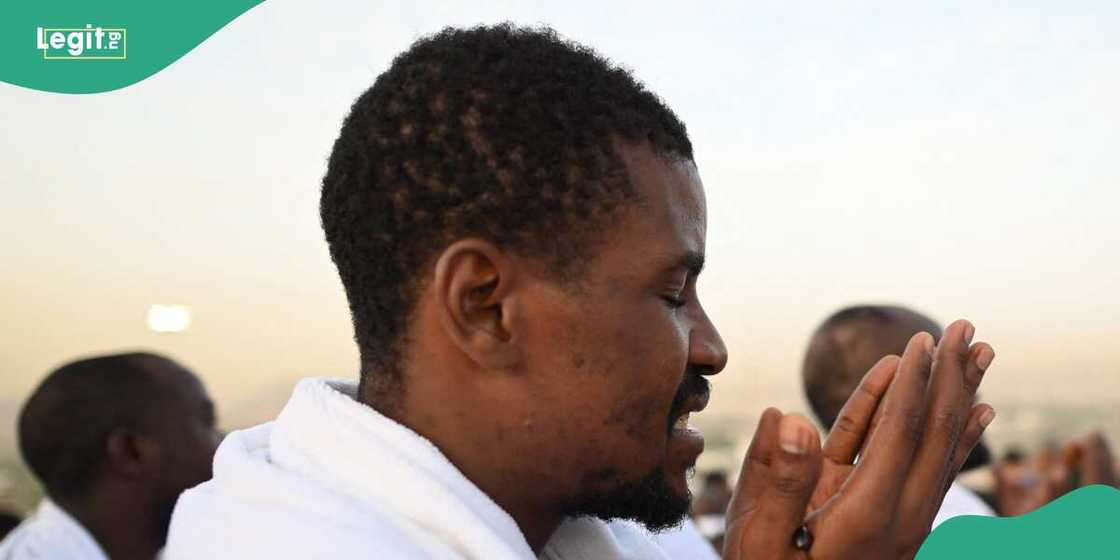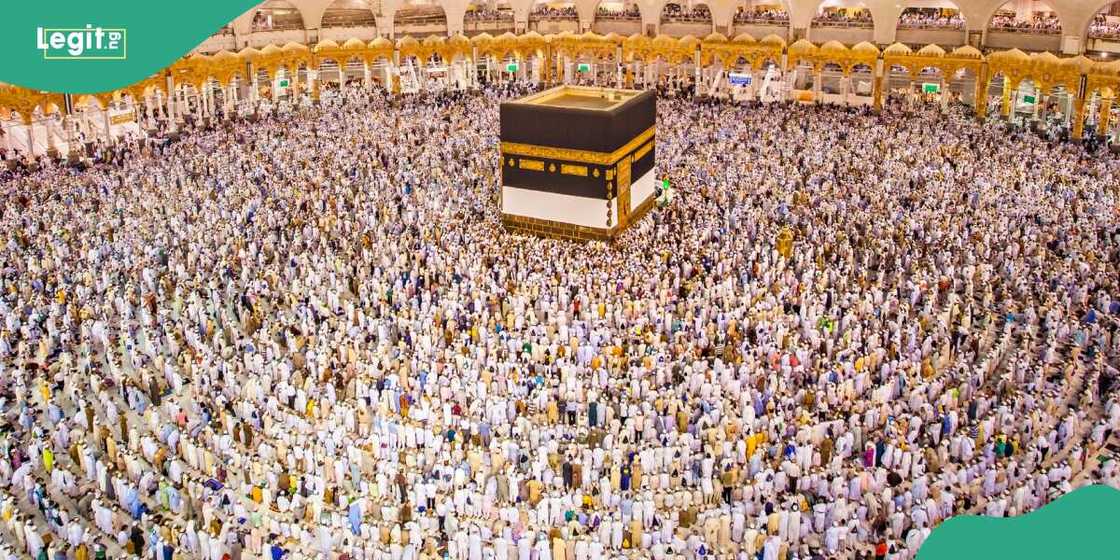List of 5 important things to do on the day of Arafah
- The Day of ‘Arafah, falling on the 9th of Dhul Hijjah, is one of the most sacred days in Islam, offering immense opportunities for worship and forgiveness
- Muslims worldwide, whether performing Hajj or not, dedicate this day to fasting, supplication, and remembrance of Allah to seek His mercy and blessings
- Here are five essential actions to maximise your rewards on this blessed day and draw closer to Allah
The Day of ‘Arafah, falling on the 9th of Dhul Hijjah, is one of the most sacred days in Islam.
It is the day before Eid al-Adha and holds immense significance for both pilgrims performing Hajj and Muslims worldwide.

Source: Getty Images
Allah said in the Qur’an:
"This day I have perfected for you your religion and completed My favour upon you and have approved for you Islam as a religion."
— Surah Al-Ma’idah | 5:3
On this day, pilgrims stand before Allah at Arafat, offering supplications and seeking His mercy. Those not undertaking the pilgrimage increase their acts of worship, striving for forgiveness and divine blessings.
Read also
Here are five essential actions to maximise your deeds on the Day of ‘Arafah.
1. Fasting on the day of ‘Arafah
Fasting on the Day of ‘Arafah is a highly recommended Sunnah for those not performing Hajj. Prophet Muhammad (peace be upon him) said:
"Fasting on the Day of ‘Arafah expiates the sins of the past year and the coming year."
— Hadith | Muslim
This act of devotion is a powerful way to earn Allah’s pleasure and seek His forgiveness. Muslims who fast on this day benefit from the immense mercy of Allah, as He forgives sins even if they are many.
2. Making duas and seeking forgiveness
The Day of ‘Arafah is an unparalleled opportunity for supplication. Prophet Muhammad (PBUH) said:
"The best supplication is the supplication on the Day of ‘Arafah, and the best words that I and the prophets before me have said are: ‘La ilaha illa Allah, wahdahu la sharika lah, lahul mulku wa lahul hamdu wa huwa ala kulli shayin qadeer’."
Read also
— Hadith | Tirmidhi
Translation: "None has the right to be worshipped except Allah, alone, without a partner. To Him belongs sovereignty and all praise, and He is over all things omnipotent."
Additionally, Allah commands in the Qur’an:
"Remember Allah through the appointed days."
— Surah Al-Baqarah | 2:203
Muslims should dedicate time to heartfelt supplications, asking for Allah’s mercy, guidance, and forgiveness.
3. Engaging in dhikr and acts of worship
Dhikr (remembrance of Allah) is highly encouraged on the Day of ‘Arafah. The best forms of Dhikr include:
- Reciting Tahleel (Laa ilaaha il-lal-laah)
- Saying Takbeer (Allahu Akbar)
- Praising Allah with Tahmeed (Alhamdulillaah)
- Glorifying Him with Tasbeeh (Subhanallaah)
It is also Sunnah to recite these phrases frequently on the Day of ‘Arafah, Eid al-Adha, and the following days of Dhul Hijjah. Muslims should increase their acts of worship, including reading the Qur’an, offering Nafl (optional) prayers, and sending Salawat (salutations) upon the Prophet (PBUH).
Read also
4. Preparing for Qurbani
While Qurbani (sacrificial offering) is performed between the 10th and 12th of Dhul Hijjah, preparations begin on the Day of ‘Arafah.
According to the Hanafi madhab, Qurbani is obligatory for every sane adult Muslim who possesses wealth beyond their essential needs.
Abu Dawud narrated:
"The Prophet sacrificed on the day of sacrifice. When he turned the faces (of the animals for sacrifice), he said: ‘I turn my face to the Creator of the heavens and the earth, on the religion of Ibrahim, worshipping only Allah… Indeed, my prayer, my rituals, my life and my death are for Allah, the Lord of Worlds.’"
Muslims should ensure their Qurbani is arranged in time for Eid, fulfilling this sacred act of devotion.
5. Waking before Fajr for tahajjud
The last third of the night is one of the most spiritually rewarding times for worship. Prophet Muhammad (PBUH) said:
Read also
"When asked which dua is heard, he said: ‘In the last third of the night, and following the prescribed prayers.’"
— Hadith | Tirmidhi, 3499
Muslims should wake before Fajr to eat Suhoor (the pre-dawn meal) and perform Tahajjud prayers. This is an ideal time to seek Allah’s mercy, forgiveness, and blessings through sincere supplication.
Rules for the day of ‘Arafah
Pilgrims performing Hajj do not typically fast on this day. Instead, they travel to the plains of ‘Arafat, standing until sunset, facing the Qiblah, and dedicating the day to dua and seeking Allah’s forgiveness.
The Prophet (PBUH) said:
"Hajj is ‘Arafah."
— Hadith | Nasa’i
For non-pilgrims, fasting is highly desirable and a Sunnah. Muslims should make the most of this blessed day by increasing their worship and seeking divine mercy.
By following these five essential actions, Muslims can maximise their rewards on the Day of ‘Arafah, drawing closer to Allah and preparing for the blessings of Eid al-Adha.
Read also

Source: Getty Images
Saudi Arabia to translate Arafah sermon in Nigerian languages
Legit.ng earlier reported that the Kingdom of Saudi Arabia has announced that the 2025 Arafah sermon will be broadcast live in Hausa, Yoruba, Fulani and 31 other languages.
The Saudi authorties explained the translation will allow pilgrims and listeners worldwide to follow the sermon in their native language.
Source: Legit.ng


